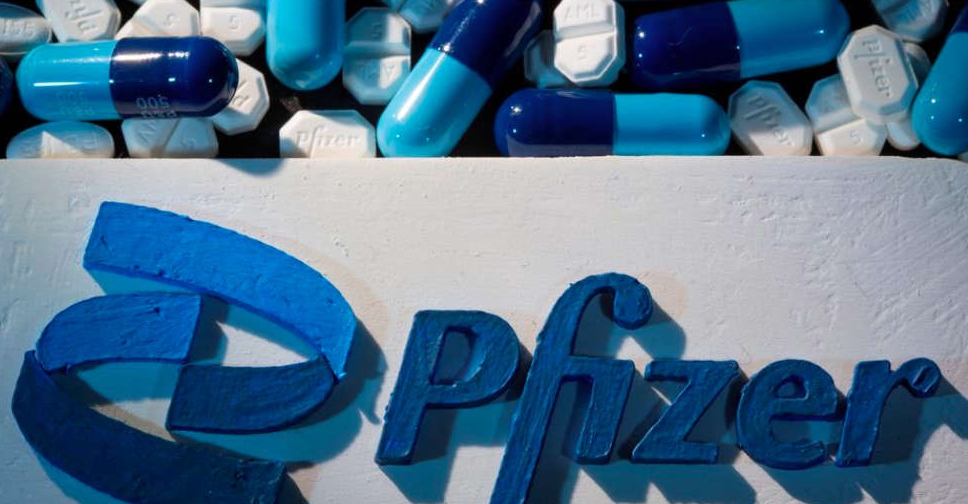
Pfizer Inc's antiviral COVID-19 pill has shown to cut by 89 per cent the chances of hospitalisation or death for high-risk adults, the company said on Friday.
The results appear to surpass those seen with Merck & Co Inc's pill molnupiravir, which was shown last month to halve the likelihood of dying or being hospitalised for COVID-19 patients also at high risk of serious illness.
Full trial data is not yet available from either company.
Antivirals need to be given as early as possible, before an infection takes hold, in order to be most effective. Merck tested its drug within five days of symptom onset.
Pfizer said it stopped trials early as the initial results were positive, adding that they will submit interim trial results for its pill to the US Food and Drug Administration as part of the emergency use application it opened in October.
"We saw that we did have high efficacy, even if it was five days after a patient has been treated ... people might wait a couple of days before getting a test or something, and this means that we have time to treat people and really provide a benefit from a public health perspective," Annaliesa Anderson, head of the Pfizer program, told Reuters.
The company did not detail side effects of the treatment, but said adverse events happened in about 20 per cent of both treatment and placebo patients.
The planned analysis of 1,219 patients in Pfizer's study looked at hospitalisations or deaths among people diagnosed with mild to moderate COVID-19 with at least one risk factor for developing severe disease, such as obesity or older age.
It found that 0.8 per cent of those given Pfizer's drug within three days of symptom onset were hospitalised and none had died by 28 days after treatment. That compared with a hospitalisation rate of 7 per cent for placebo patients. There were also seven deaths in the placebo group.
Rates were similar for patients treated within five days of symptoms - 1 per cent of the treatment group was hospitalized, compared with 6.7 per cent for the placebo group, which included 10 deaths.
"These data suggest that our oral antiviral candidate, if approved by regulatory authorities, has the potential to save patients’ lives, reduce the severity of COVID-19 infections, and eliminate up to nine out of ten hospitalizations,” Pfizer Chief Executive Albert Bourla said in a statement.
The combination treatment, which will have the brand name Paxlovid, consists of three pills given twice daily.
Infectious disease experts stress that preventing COVID-19 through wide use of vaccines remains the best way to control the pandemic, but only 58 per cent of Americans are fully vaccinated and access in many parts of the world is limited.
Pfizer's drug, part of a class known as protease inhibitors, is designed to block an enzyme the coronavirus needs in order to multiply.
Merck's molnupiravir has a different mechanism of action designed to introduce errors into the genetic code of the virus. Merck has already sold millions of courses of the treatment, which was approved this week by UK regulators, to the United States, the UK and others.
Britain said earlier this month it had secured 250,000 courses of Pfizer's antiviral.
Pfizer is also studying whether its pill could be used by people without risk factors for serious COVID-19 as well as to prevent coronavirus infection in people exposed to the virus.




 Israeli attacks on Gaza killed 60 people in 24 hours
Israeli attacks on Gaza killed 60 people in 24 hours
 Trump fires National Security Agency director
Trump fires National Security Agency director
 Israel steps up Syria strikes, says Turkey aims for 'protectorate'
Israel steps up Syria strikes, says Turkey aims for 'protectorate'
 US sending Israel 20,000 assault rifles that Biden delayed
US sending Israel 20,000 assault rifles that Biden delayed



